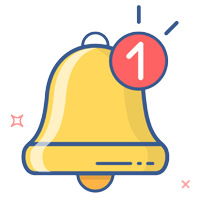Federal Skilled Worker
One of the categories under the Express Entry program is the Federal Skilled Worker – FSWC (formerly known as the Federal Skilled Worker Program – FSWP). If you are a skilled worker with foreign work experience and are looking to immigrate permanently to Canada, you can apply via this Class.

Federal Skilled Worker
Federal Skilled Worker
One of the categories under the Express Entry program is the Federal Skilled Worker – FSWC (formerly known as the federal skilled worker program – FSWP). If you are a skilled worker with foreign work experience and are looking to immigrate permanently to Canada, you can apply via this pathway.
What is the Federal Skilled Worker Class?
The Federal Skilled Worker (FSW) program is one of the programs aligned within Canada’s Express Entry system for processing PR applications. Express Entry programs are highly competitive and used Comprehensive Ranking System (CRS) to rank applicants
Who Can Apply For PR Through The Canadian Experience Class?
To be eligible, you must meet the minimum requirements under this Class:
- Skilled work experience
- Language ability
- Education
This requirement expect that you have worked in (1) of these National Occupational Classification (NOC) job groups:
- Managerial jobs (skill type 0)
- Professional jobs (skill level A)
- Technical jobs and skilled trades (skill level B)
For any of these NOC job groups, there would be an occupational description with a lead statement. You must prove that through your work experience that you have performed all the essential duties and most of the main duties listed in the lead statement.
Your skilled work experience must be:
- in the same type of job (have the same NOC) as the job you want to use for your immigration application (primary occupation).
- within the last consecutive 10 years.
- paid work ( Volunteer work or unpaid internships do not count).
- at least 1 year of continuous work or 1,560 hours total (30 hours per week).
- full-time at 1 or more jobs: 30 hours/week for 12 months = 1 year full time (1,560 hours).
- equal amount in part-time: 15-29 hours/week for 24 months = 1 year full time (1,560 hours).
- You must complete language tests in English or French for:
- writing, reading, listening, speaking
- You must earn a minimum score of Canadian Language Benchmark (CLB) 7 in all 4 abilities
It is important for you to ensure that your score is valid on the day you apply for permanent residence. Your Language tests are valid for (2) years after the date of the test result.
Whether you studied in Canada or abroad there are certain criteria to be met.
- If you went to school in Canada, you must have a certificate, diploma, or degree from a Canadian: secondary (high school) or post-secondary school (college, university, trades school)
- If you completed your education abroad, you must have:
- a completed credential
- an Educational Credential Assessment (ECA) report from an approved agency that shows that your education is equivalent to a completed certificate, diploma, or degree from a Canadian secondary (high school) or post-secondary school.
How is the selection score calculated?
You will get points for this factor based on your age on the day your application is received.
| Age | Points |
| Under 18 | 0 |
| 18-35 | 12 |
| 36 | 11 |
| 37 | 10 |
| 38 | 9 |
| 39 | 8 |
| 40 | 7 |
| 41 | 6 |
| 42 | 5 |
| 43 | 4 |
| 44 | 3 |
| 45 | 2 |
| 46 | 1 |
| 47 and older | 0 |
Education points are awarded based on an assessment of your educational credentials. For any foreign-obtained credentials, this assessment will include a determination of the equivalent to that credential if it were obtained in Canada.
You will be awarded under the Education Factor on the following basis:
| Level of Education | Points (25 max) |
| Doctoral (PhD) level | 25 points |
Master’s level or professional degree. Occupation related to the degree must be:
Also, Degree Class must be in one of the following academic disciplines: Medicine, Veterinary Medicine, Dentistry, Podiatry, Optometry, Law, Chiropractic Medicine, or Pharmacy. |
23 points |
| Two or more post-secondary credentials, one of which is a three-year or longer post-secondary credential | 22 points |
| Three-year or longer post-secondary credential | 21 points |
| Two-year post-secondary credential | 19 points |
| One-year post-secondary credential | 15 points |
| Secondary school/high school diploma | 5 points |
Under this factor up to 15 points are awarded, based on the number of years of work experience.
You require at least 12 months of full-time skilled work experience (or the equivalent in part-time work), and points can be earned for up to six years of work experience. The work experience must be an occupation listed by the Government of Canada as having a 0, A, or B NOC code (National Occupational Classification).
Points will be awarded on the following basis:
| Experience | Maximum 15 points |
| 1 year | 9 |
| 2-3 years | 11 |
| 4-5 years | 13 |
| 6 or more years | 15 |
You may earn a maximum of 15 points under this factor (‘Arranged Employment’) if a Canadian employer extends you an offer of full-time permanent employment in Canada.
If you meet one of the following conditions you may earn a maximum of 10 points under the Arranged Employment.
| Scenarios | Points | ||
| If the applicant is currently working in Canada on a work permit, | and |
|
10 |
If the applicant is currently working in Canada in a job that is LMIA-exempt because of the following:
|
and |
|
10 |
| If the applicant does not hold a valid work permit and is not authorized to work in Canada. | and |
|
10 |
| If the applicant holds a valid work permit or is otherwise authorized to work in Canada without a work permit | and |
|
10 |
In Canada, there are 2 official languages, English and French. It is important that you are able to communicate in 1 or both languages that will help you in the Canadian job market.
You will have to complete an approved language test to prove your language level. This will get you up to 28 points for your language skills (English, French).
Language levels are measured using the Canadian Language Benchmarks (CLB) for English and Niveaux de compétence linguistique canadiens (NCLC) for French
A minimum of CLB 7 or NCLC 7 is required for 1 official language in all language areas (reading, writing, speaking, listening). For you to get points for the second official language, you will need a minimum of CLB 5 or NCLC 5 in all language areas.
First official language (maximum 24 points)
Check the table below and add the points that match your skill level:
| Points | ||||
| First official language | Speaking | Listening | Reading | Writing |
| CLB level 9 or higher | 6 | 6 | 6 | 6 |
| CLB level 8 | 5 | 5 | 5 | 5 |
| CLB level 7 | 4 | 4 | 4 | 4 |
| Below CLB level 7 | Not eligible to apply | Not eligible to apply | Not eligible to apply | Not eligible to apply |
Second official language (maximum 4 points)
You can get 4 points only if you have a score of at least CLB 5 in each of the 4 language abilities.
| Second official language | Points |
| At least CLB 5 in all of the 4 abilities | 4 |
| CLB 4 or less in any of the 4 abilities | 0 |
| Adaptability | Maximum 10 points |
| Your spouse or partner’s language level
Your spouse or common-law partner has a language level in either English or French at CLB 4 level or higher in all 4 language abilities (speaking, listening, reading and writing). To get these points, you must submit your spouse or common-law partner’s test results from an approved agency when you apply. The language tests are valid for 2 years after the date of the test result. They must be valid on the day you apply for permanent residence. |
5 |
| Your past studies in Canada
You completed at least 2 academic years of full-time study (in a Class at least 2 years long) at a secondary or post-secondary school in Canada. Full-time study means at least 15 hours of classes per week. You must have stayed in good academic standing (as set out by the school) during that time. |
5 |
| Your spouse or partner’s past studies in Canada
Your spouse or common-law partner completed at least 2 academic years of full-time study (in a Class at least 2 years long) at a secondary or post-secondary school in Canada. Full-time study means at least 15 hours of classes per week, and your spouse or partner must have stayed in good academic standing (as set out by the school) during that time. |
5 |
| Your past work in Canada
You did at least 1 year of full-time work in Canada:
|
10 |
| Your spouse or common-law partner’s past work in Canada
Your spouse or partner did at least 1 year of full-time work in Canada on a valid work permit or while authorized to work in Canada. |
5 |
| Arranged employment in Canada
You earned points for having arranged employment. |
5 |
| Relatives in Canada
You, or your spouse or common-law partner, have a relative who is:
This relative must be a:
|
How Can one apply through the Federal Skilled Worker Class?
The application package includes a guide and document checklist that will help guide you to filling the forms correctly. Ensure that you gather all the supporting information listed in the Document Checklist. You have 60 days to include all the forms, information, documents, signatures, language test results, and fees.
Here is what the fees you are paying will include when applying through Federal Skilled Worker Class
- processing fees for you and anyone you include on your application
- the Right of Permanent Residence Fee (RPRF)
- biometrics
- third-party fees (medical exam, Police Certificates, Language Testing)
Here is a checklist to look at to ensure you have completed your application:
- all questions are answered
- the application and all forms have been signed
- Processing fees have been paid, and a copy of the receipt is attached to your application
- all supporting documents are included
